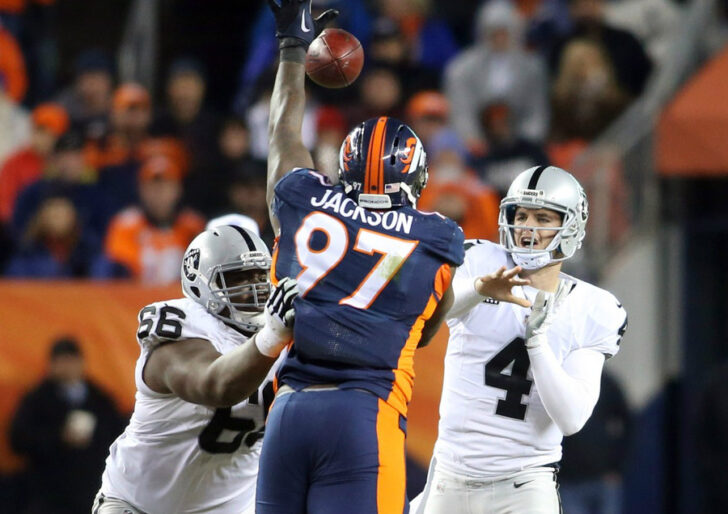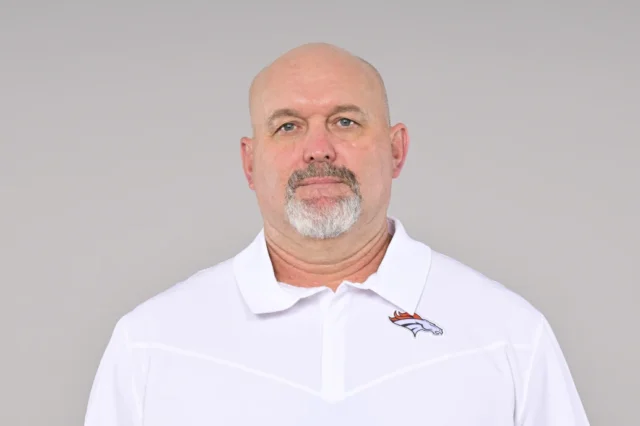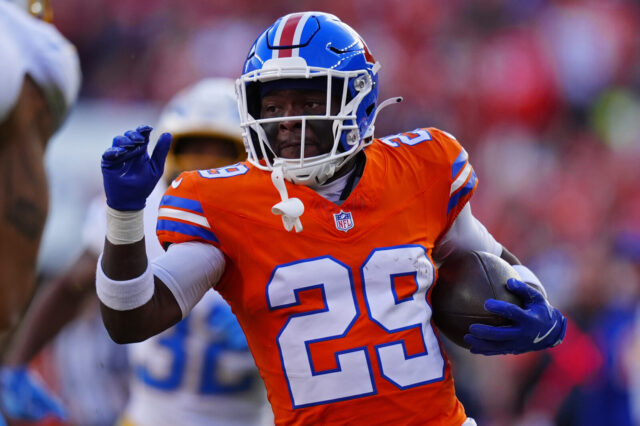As the Broncos get set to head into free agency, looking to begin their quest at repeating as champions, one plan has emerged as the prevailing thought process in Denver: No matter what, keep the defense intact.
On the surface, this makes perfect sense. After all, the Broncos just won Super Bowl 50 despite the fact that their offense was borderline anemic; they captured a Lombardi Trophy because their defense carried the team across the finish line. So keeping that group together, maintaining a unit that has championship pedigree, seems reasonable.
That’s why most people are establishing Denver’s offseason priorities in a defense-centric fashion. First, John Elway and Company need to find a way to keep Von Miller in town; the reigning Super Bowl MVP must come back. Second, the Broncos have to keep Malik Jackson; they already re-signed his fellow defensive end, Derek Wolfe. And finally, Danny Trevathan must be a part of the team’s plans in 2016 and beyond.
Those three moves would keep a championship defense together, which is the recipe that seems to be the conventional wisdom at this point. Heck, some people even believe that keeping all of the team’s backups in place – such as safeties Omar Bolden and David Bruton Jr. – should be high on the list of priorities.
Meanwhile, the other side of the ball – which features an offense that seemed thrilled to run three plays and punt in the second half of Super Bowl 50 – is getting ignored. Even at the most important position in football, there’s little concern; no one seems to be the least bit worried about the idea of Peyton Manning retiring and Brock Osweiler signing elsewhere, a situation that would leave the defending champs precariously thin at quarterback.
While this all may make sense at first glance, given that the idea is to maintain the strength of the team, history suggests that the concept is fundamentally flawed. There’s little evidence to suggest that building a team around a strong defense is a blueprint for dynastic results.
Think about all of the teams that Denver has been compared to in the past few weeks. What do they all have in common?
The 1985 Bears. The 2000 Ravens. The 2002 Buccaneers. Even the 2013 Seahawks, at least so far. What’s the trait that each possessed?
All of them were one-hit wonders.
For all of their greatness, none of those teams were able to repeat. Not only did they fail to defend their championship, they never even won a second Super Bowl with their defense-first mentality.
The Bears won one playoff game in the three seasons after their title before going 6-10 in 1989. The Ravens went a very mediocre 42-38 in the five campaigns that followed their championship. The Bucs went 12-20 in the two seasons following their win, starting a stretch without a postseason victory that is at 13 years and counting. And the Seahawks just missed on repeating in 2014, while having to settle for a wild card spot this year.
This suggests that winning behind a formidable defense is possible once, but it’s not a long-term plan. Reaching the mountaintop in spite of a so-so offense is the exception to the rule.
Jim McMahon, Trent Dilfer, Brad Johnson and Russell Wilson weren’t able to game-manage their way to a second championship. Meanwhile, the likes of Troy Aikman, John Elway, Tom Brady, Ben Roethlisberger and Eli Manning have been able to hoist multiple Lombardi Trophies during the past quarter century.
The takeaway is pretty clear: Quarterback play is the key to sustained success in the NFL.
Yes, a team with average quarterback play can occasionally win it all, but it’s certainly not the most-common approach to winning a Super Bowl. It’s only happened three or four times in the past 20 years, providing the very definition of an aberration.
Meanwhile, guys like Drew Brees, Peyton Manning, Aaron Rodgers and Kurt Warner have joined the list of previously mentioned greats to lead their team to a title. Roughly 80 to 85 percent of the time, the last team standing has been guided by a future Hall of Fame quarterback.
But somehow, the Broncos are going to defy history? They’re going to be the one team that is able to maintain a level of greatness on defense, even when some of the best groups in the history of the game weren’t able to reach the pinnacle a second time?
Maybe they can. After all, they are a very good unit, led by a rejuvenated coordinator that hit all the right buttons last season. But it’ll be very difficult, no matter how intact they stay during the offseason, for Wade Phillips’ defense to maintain their level of play and once again carry the Broncos to a Super Bowl.
That’s why the Broncos need to avoid the chorus from the peanut gallery during free agency. John Elway has to ignore the calls to maintain the status quo, knowing that a different recipe for success will be necessary next season and beyond.
Without a doubt, Miller needs to be retained; he’s arguably the best defensive player in football. But beyond No. 58, everyone else is expendable.
Jackson has been a nice player, but he’s going to get grossly overpaid by someone. It’s silly to break the bank on someone who has recorded 14.5 sacks during his four-year career. But some desperate team will give him defensive end money, despite the fact that he’s more of an interior player; they’ll soon find out that he’s a great role player, but not a game changer.
While Trevathan would certainly look nice in the middle of Denver’s defense again next year, his presence is more of a luxury than a necessity. The Broncos have proven that they can find diamonds in the rough to fill that position; after all, Brandon Marshall was a castoff from the Jaguars, for crying out loud. They can find another fast, young linebacker who can cover the field from sideline to sideline.
And Bolden and Bruton are players that would be nice to keep, but only at the right price. Throughout their careers in Denver, both have failed to crack the starting lineup; during those years, the Broncos have brought in a litany of other safeties, which makes a giant statement. Bolden and Bruton are great backups, but they aren’t first-team material.
Meanwhile, solving the riddle on offense is an absolute must. The Broncos can’t be a team that failed to convert 13 consecutive third downs, as they did in Super Bowl 50, and expect to win on a regular basis. That’s just not a sustainable plan.
Re-signing Osweiler is the second biggest priority after Miller. The Broncos have to have a reliable quarterback for next year and beyond; they can’t let Brock walk. If they do, Denver is at risk of being in QB limbo for years to come.
Fixing the offensive line is a close second. The No. 1 reason that Denver’s offense struggled in 2015, no matter who was playing quarterback, was because they couldn’t protect the passer. Getting Ryan Clady back on the field, at a reasonable price tag, is a must; so too is making sure that Ty Sambrailo was worth a high draft pick last season. Otherwise, Elway has to revamp an o-line that was well below average last season.
And finding a tight end that can stretch the field is another must. Owen Daniels had a solid end to the season, but he was never able to adequately replace Julius Thomas. That’s why the Broncos rolled the dice and traded for Vernon Davis during the season; finding someone who can create mismatches from the tight end position is a key to Gary Kubiak’s offense. While Davis proved to not be the answer, finding someone who is remains an important goal.
It all adds up to a different plan than most people think. But that’s what makes Elway so good as a general manager; he knows when something has peaked – such as the Broncos offense in 2013 – and he’s willing to move in the other direction.
If the Broncos want to repeat in 2016, they need to avoid the obvious path during the upcoming offseason. It’s not about keeping their defense together; instead, fixing the offense is Denver’s only path to sustained success.



